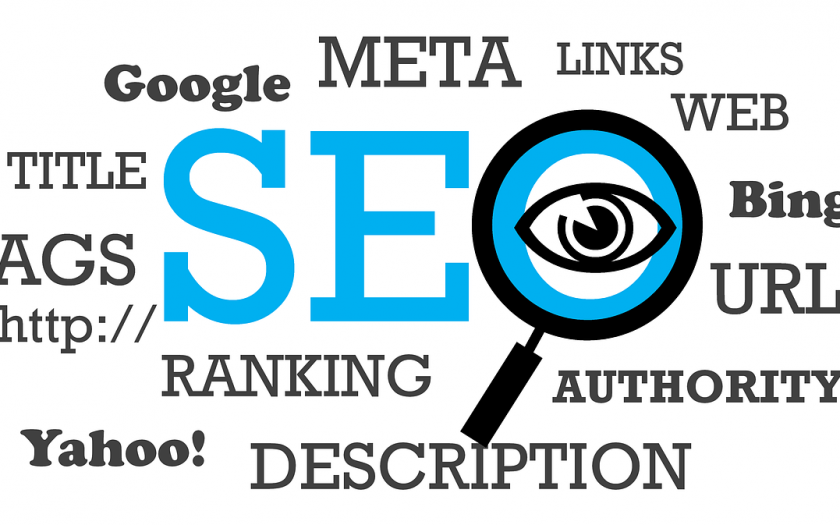E-commerce continues to rise in terms of market share, so businesses naturally want to benefit from the trend. However, creating an e-commerce website is a major undertaking that requires careful planning and considerable effort.
After creating your e-commerce site, you need to promote it. Many popular digital marketing tactics can drive traffic to your store, including search engine optimization (SEO). To get the best from your SEO strategy, learn about the following top SEO mistakes so you can avoid them.
1. Skipping SSL
Some businesses want to avoid spending money on an SSL certificate for their e-commerce site. As a result, shoppers are treated with red warning signs in their browser, saying that their security is at risk. Many visitors will quickly leave. So, don’t let this happen.
When you invest in SSL, your e-commerce site becomes accessible via HTTPS. This means that traffic between your site and your visitors’ web browser is encrypted and cannot be viewed by hackers and snoops.
In short, operating a secure e-commerce site is essential to your success. Without it, shoppers will hesitate to register for your site and submit their payments. Having SSL in place will also establish your business as a credible player in the e-commerce world.
2. Duplicate Titles
Every product that you offer in your e-commerce store needs to have a unique title. This applies even when you have many similar products. However, many e-commerce businesses forget to do this. Instead, they copy and paste titles from one product to another. Avoid this mistake.
When search engines crawl your website, they will see a lot of duplicate material. They may also fail to distinguish the difference between your products. In the end, you may discover that Google ignores many of your products in search results.
Improve the performance of your e-commerce website by providing a meaningful and unique title for each of your products. Whenever possible, use a consistent format. For example, you may want to include the brand name and model number in your titles along with key phrases.
3. Failure to Plan
Many businesses fail at SEO because they want to quickly get started. However, such haste results in a lot of wasted time and can actually harm SEO performance. Furthermore, you may optimize for the wrong keywords and phrases and start attracting irrelevant website traffic.
Increase your chance for success by planning your SEO strategy and integrating it into your wholesome marketing plan, before you do any work. This process will help you ensure that your SEO activities contribute to your overarching goals.
Begin your work by getting to know your target customers and the terms they use. Additionally, you should learn what keywords your competitors are using. Finally research search volume and cost-per-click data to choose profitable keywords that you can also use for PPC.
4. Missing Reviews
You may feel tempted to prevent your customers from leaving product reviews. After all, they may leave embarrassing negative remarks or even recommend a competing product. Add to that the extra time you must spend addressing any user question and concerns.
Always allow product reviews on your e-commerce site. Doing so adds unique content to your website that can help you with SEO. Similarly, product reviews can improve your search engine performance by keeping your pages fresh.
Perhaps more importantly, product reviews help to improve the customer experience provided by your site. Learning from the experiences and opinions of others can help people choose the products that are the best fit for them.
5. Unoptimized Pages
Even a small business may have hundreds or thousands of products for sale. For this reason, some companies will simply copy manufacturers’ descriptions and past them to their site. Unfortunately, this can cause two problems.
First, many other businesses may use the same product descriptions, setting the stage for SEO penalties for hosting duplicate content. Secondly, failing to optimize your descriptions causes you to miss a chance to boost your SEO performance and drive more website traffic.
Spend time researching each of your products, finding out what keywords and phrases people use to find them. During this process, you may discover that no one is searching for some of your products, giving you a chance to eliminate products that will probably never sell.
6. Generic URLs
Some e-commerce platforms may use generic URL structures out-of-the-box. Although these URLs work, they don’t give you any SEO benefits. In other words, failure to optimize your product-page URLs is like leaving money on the table.
For starters, optimized product URLs eliminate confusion. They clearly alert search engines and shoppers about the contents of a page. Likewise, by adding keywords to your URLs, you increase the SEO value of your pages.
In response, spend the necessary time creating meaningful URLs for each of your products. This may improve your visibility in search engine results and help your customers as they shop.
In summary, you have learned about some of the SEO mistakes you can make with your e-commerce site. Fortunately, by following the provided tips, your online store can become a valuable, asset that attracts steady streams of qualified search engine traffic.




